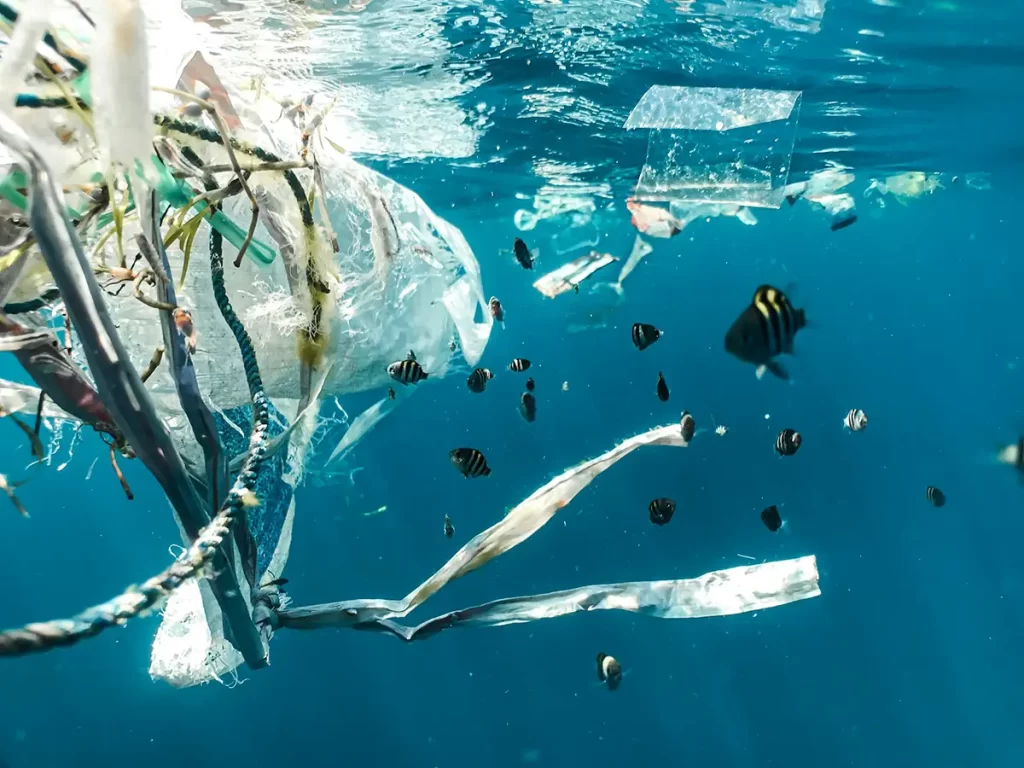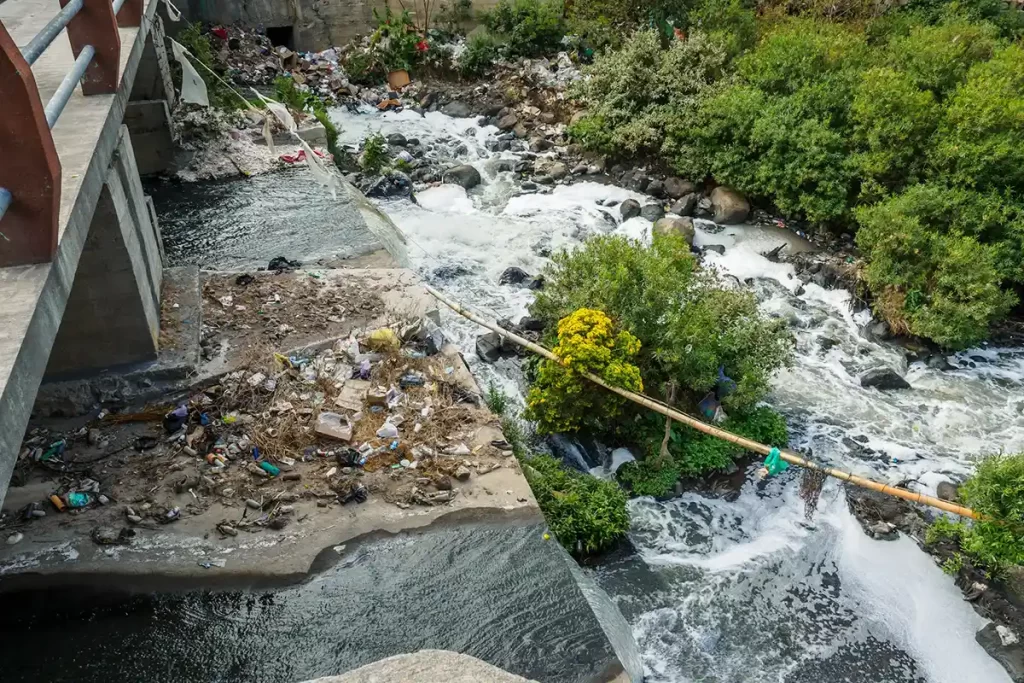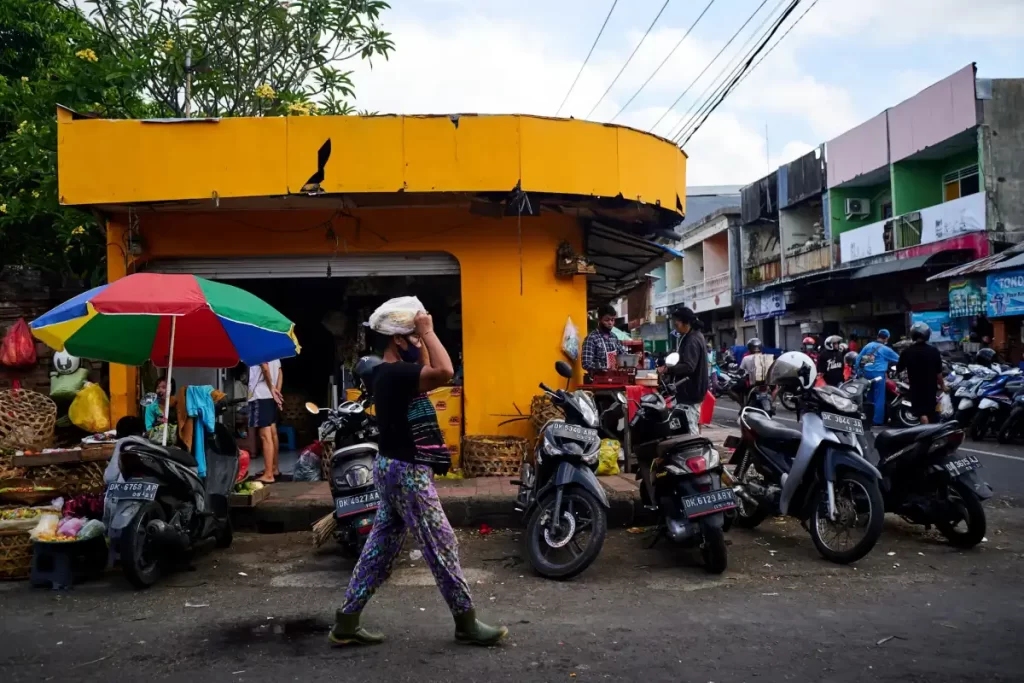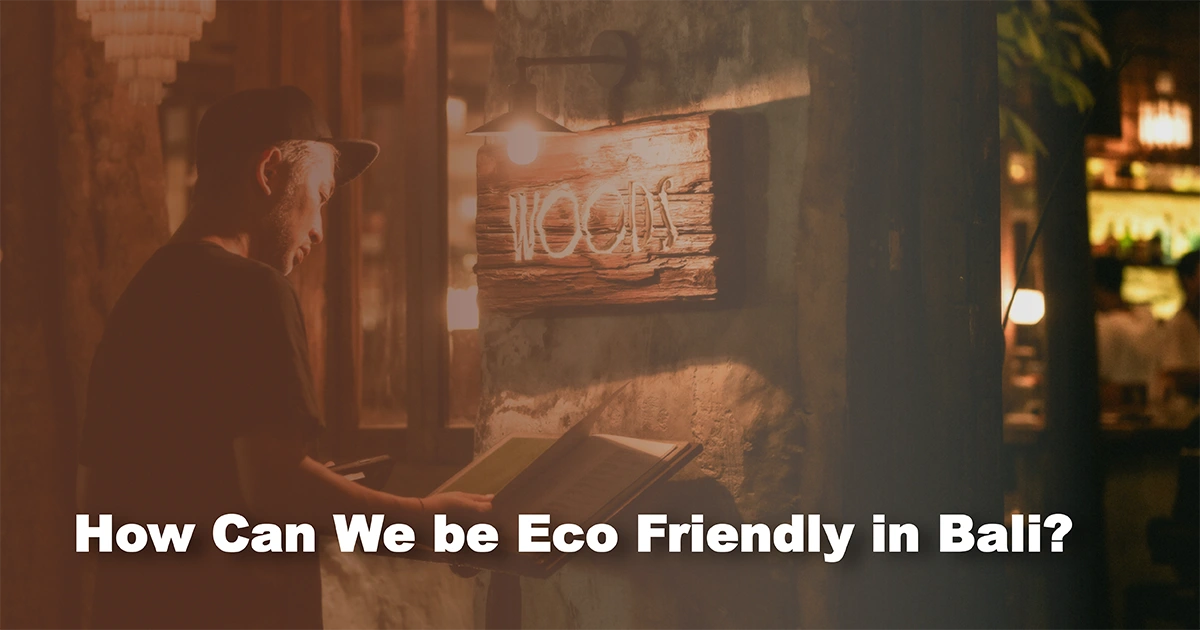Bali, also known famously as the Island of the Gods, is a place where many tourists flock from around the world, making it one of the top destinations in the world. However, not many people know that, like many other beautiful destinations around the world, it faces a range of environmental issues that threaten its natural ecosystems and the well-being of its inhabitants. Some of the most urgent environmental challenges confronting Bali include:
Table of Contents
ToggleEnvironmental Problems Faced by Bali
Plastic Pollution

One of the most pressing issues in Bali is plastic pollution. The widespread use of single-use plastics, such as bags, bottles, and straws, has led to significant pollution of the island’s beaches, rivers, and oceans. Improper disposal and inadequate waste management exacerbate this problem, posing threats to marine life and ecosystems.
Water Pollution

Pollution of water bodies, including rivers, streams, and coastal areas, is a significant concern in Bali. Agricultural runoff, untreated sewage, and industrial discharge contribute to water pollution, affecting both marine life and public health. Contaminated water can lead to the degradation of coral reefs, loss of biodiversity, and waterborne diseases.
Deforestation

The rapid expansion of tourism and urban development has led to extensive deforestation in Bali. Forests are cleared for infrastructure projects, agriculture, and commercial purposes, resulting in habitat loss for wildlife and disruption of ecosystems. Deforestation also contributes to soil erosion, decreased water quality, and loss of biodiversity.
Overdevelopment and Urbanization

The rapid pace of development and urbanization in Bali has led to environmental degradation and loss of green spaces. Uncontrolled construction of hotels, resorts, and infrastructure encroaches on natural habitats, exacerbating issues such as deforestation, pollution, and habitat fragmentation. Balancing economic growth with environmental conservation is a significant challenge for sustainable development in Bali.
As you can see, despite Bali’s beauty, it currently faces numerous challenges. There must be massive efforts from all authorities and government bodies to address these issues. Even as an individual, you can contribute to this noble mission of preserving Bali’s environment. No matter how small, your actions will undoubtedly have an impact. One of the simplest yet most effective ways to do this is by adopting eco-friendly practices into our daily routines. So, how can we be eco-friendly in Bali? Let’s delve into some easy and practical tips
For more travel insights and tips for your Bali journey, check out our article Best Time and Month to Visit Bali: A Guide to Your Perfect Escape.
7 Ways You Can Contribute to Preserving Bali’s Nature
1. Ditch the plastic bags
When you’re out shopping in Bali, say no to plastic bags. Instead, bring your own reusable shopping bags. Many shops offer beautifully crafted woven bags that not only look stylish but also help reduce plastic waste. By using reusable bags, you’ll be doing your part to protect Bali’s environment and its stunning landscapes.
2. Bring a reusable water bottle everywhere
Bali’s tropical climate means it’s essential to stay hydrated, but buying bottled water packaged in plastic adds to the pollution problem. Bring your own reusable water bottle wherever you go. Not only does this reduce plastic waste, but it also saves you money in the long run. Plus, many hotels and restaurants offer refill stations, making it convenient to stay hydrated without relying on single-use plastics.
3. Skip the plastic straw
Plastic straws are a major contributor to pollution, especially in coastal areas like Bali. Instead of using plastic, opt for metal or bamboo straws. Not only are these alternatives eco-friendly, but they also add a touch of novelty to your dining experience. Many restaurants and cafes in Bali now offer these sustainable alternatives, so make the switch and help protect Bali’s beautiful beaches and marine life.
4. Choose eco-friendly accommodation
Look for hotels and resorts in Bali that prioritize sustainability. These accommodations often utilize solar power, implement rainwater harvesting systems, and use eco-friendly materials in their construction. By choosing eco-friendly accommodation, you’ll be supporting businesses that minimize their environmental footprint and contribute to the preservation of Bali’s natural beauty.
5. Pack reef-safe sunscreen
While protecting your skin from the sun is important, it’s equally crucial to safeguard Bali’s delicate coral reefs. Choose reef-safe sunscreens that are free from harmful chemicals like oxybenzone and octinoxate, which can bleach and damage coral reefs. Look for sunscreens that use zinc oxide or titanium dioxide as active ingredients, as these are considered reef-safe alternatives.
6. Take part in a beach cleanup
Joining a beach cleanup initiative is a meaningful way to give back to the community and contribute to the preservation of Bali’s pristine beaches. Many organizations organize regular beach cleanups, providing an opportunity for locals and tourists alike to make a positive impact. By participating in beach cleanups, you’ll be helping to remove plastic and other debris from the shoreline, making it safer for marine life and more enjoyable for everyone.
7. Dine responsibly at sustainable restaurants and eateries
Support restaurants in Bali that prioritize sustainability and source their ingredients locally. By choosing eateries that emphasize eco-friendly practices, you not only enjoy delicious meals but also contribute to the local economy and environmental conservation efforts. Look for restaurants that use organic, locally sourced ingredients, minimize food waste, and implement energy-saving measures in their operations. By dining responsibly, you’ll be supporting businesses that care about Bali’s environment and its future.
By incorporating these simple yet effective tips into your daily routine, you can play a part in protecting Bali’s natural environment for generations to come. Whether you’re lounging on the beach, exploring hidden waterfalls, or trekking through lush rice terraces, remember to tread lightly and leave only footprints behind. Together, we can all make a difference in preserving the beauty of Bali for future adventurers to enjoy.
To ensure you have a smooth sailing during your adventure here in Bali, check out our article on Essentials 20 Do’s and Don’ts in Bali For Tourists and Travelers
For those seeking to lead a more sustainable lifestyle and make environmentally friendly choices, particularly when it comes to food, dining at Woods Bali is an excellent choice. At Woods Bali, we specialize in serving high-quality Mediterranean cuisine crafted from locally sourced ingredients, supporting the island’s sustainability efforts. Our restaurant boasts a serene ambiance created entirely from reclaimed wood, providing a tranquil atmosphere to enjoy delicious food.









